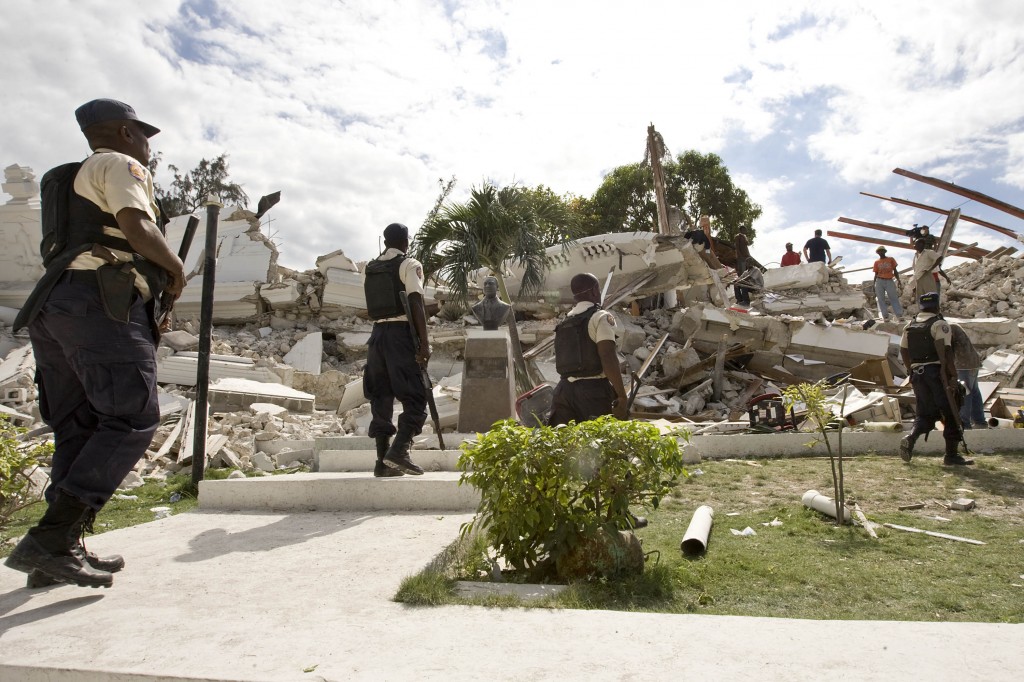Marilyn Allien, head of La Fondation Heritage pour Haiti (LFHH), the Transparency International chapter in Haiti, reflects on what the return of former president Jean-Claude ‘Baby Doc’ Duvalier after 25 years in exile means for Haiti.
Truly, we in Haiti are having a very hard time digesting this event and what it means for governance and the rule of law in Haiti. At LFHH, we are in shock – it’s almost like another earthquake in terms of its implications, particularly for the victims and their family members who suffered under the Duvalier regime.
The local media are reporting that some people who were tortured more than 25 years ago are now compiling documents to lodge complaints. It is a pity that this was not done before. We know that the statute of limitations has run out on crimes of corruption – a case in point is the alleged stolen assets that are now frozen in Switzerland – but there are no statutes of limitations for crimes against humanity. However, at the hearing at the Prosecutor’s office on January 18, Duvalier was not charged with crimes against humanity.
After his hearing, Duvalier was allowed to return to his hotel but asked “to remain at the disposition of Haitian justice.”
What, we are asking ourselves, is Haitian justice today? In 2009 we at LFHH have looked at the Haitian pillars of justice as part of a National Integrity System review of governance systems and found them sorely lacking. Haiti’s Superior Council of Judiciary Power created by a law voted in 2009 and responsible for ensuring the integrity of magistrates and judges is yet to be operational as it is supposed to be headed by the President of the Supreme Court. This post has been vacant since 2004 and Haiti’s president has failed to nominate a new President of the Supreme Court. All these failings date to before the earthquake and its devastation and before the latest round of elections which have further weakened the system.
 [Building up Justice: Haiti’s Palace of Justice in ruins after the 2010 earthquake]
[Building up Justice: Haiti’s Palace of Justice in ruins after the 2010 earthquake]
It would be optimistic to predict that justice will be done in the case of Jean-Claude Duvalier – who misruled Haiti for 15 years (François Duvalier, the father, was President for life during a period of 14 years) –but as we struggle to reconstruct our devastated island, it is this kind of optimism that keeps us going.
A good friend of mine, journalist Michael Deibert, wrote an article for CNN that encapsulates what many of us feel as we wait to see what will happen next. The return of Duvalier, he said is “a sharp reminder of how impunity remains a significant stumbling block as Haitians try to construct a more just and equitable society.”
And if that were not enough, news is now spreading through Haiti that
Jean-Bertrand Aristide, another former corrupt and murderous misruler of Haiti, is also trying to return to the island.
Haitians are still waiting to see if any of the perpetrators of crimes under the Duvalier and Aristide regimes will ever be brought to justice. This would be a big step forward for a nation struggling to build accountability and integrity into a new governance regime.
I whole-heartedly concur with what Michael Deibert wrote: “Frustratingly for the people of Haiti, far from being supported in their calls for justice, the abuses they have experienced have more often than not become a political football among international actors.”
What we are fighting for and advocating is a strong judicial system where impunity has no place. The shock of Duvalier’s return makes this all the more urgent.
Photo credit: UN Photo/Logan Abassi















 Connect with us on Facebook
Connect with us on Facebook Follow us on Twitter
Follow us on Twitter